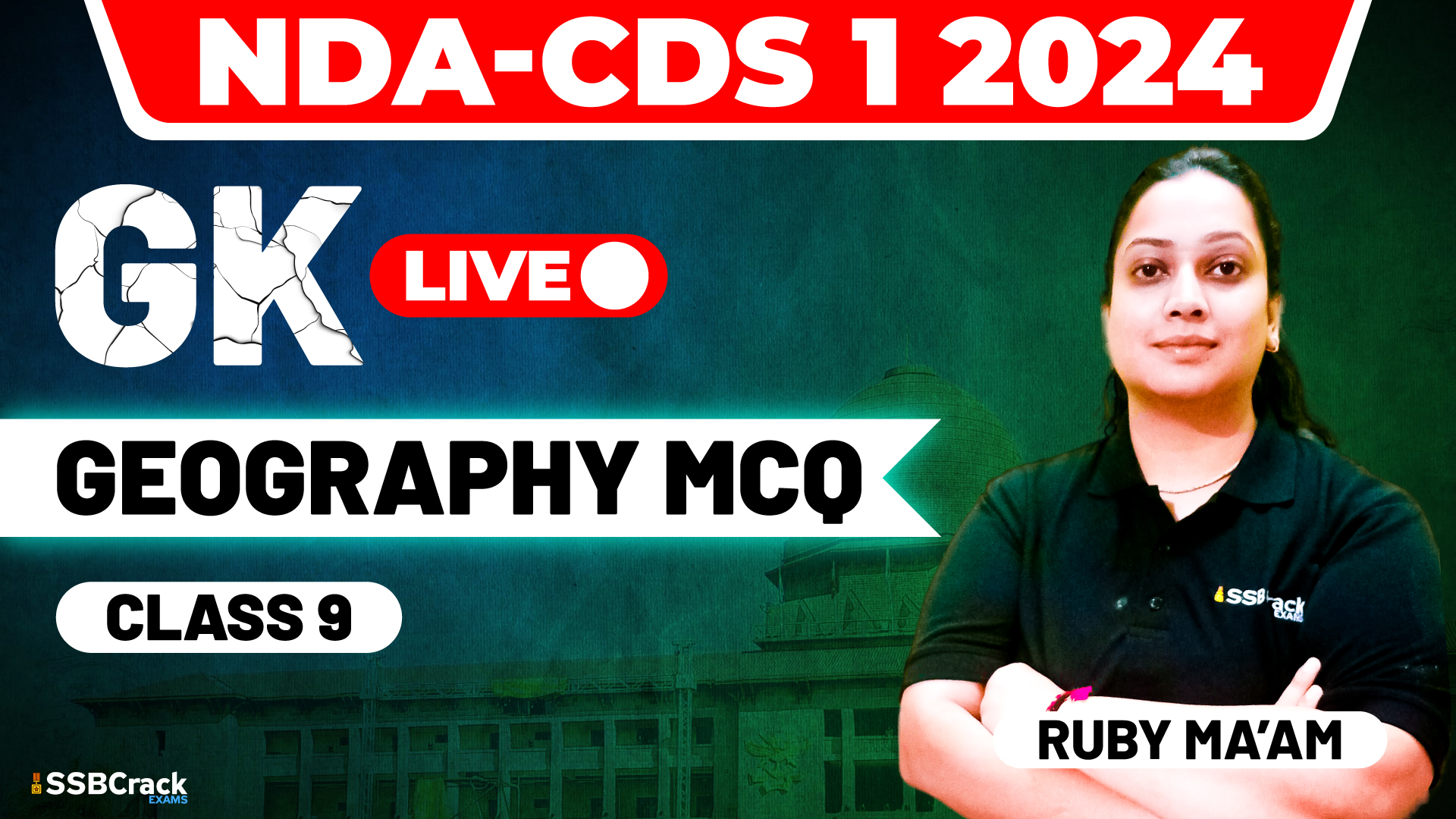Geography, a multifaceted subject, holds immense significance for aspirants preparing for the National Defence Academy (NDA) and Combined Defence Services (CDS) examinations. While the syllabus encompasses various subjects, mastering Geography Multiple Choice Questions (MCQs) stands as a pivotal pillar for success in these highly competitive exams.
Understanding the Significance:
1. Comprehensive Coverage:
Geography MCQs encompass a broad spectrum of topics, ranging from physical geography like landforms, climate, and natural resources to human geography involving population, agriculture, and industries. These questions demand a thorough understanding of geographical concepts, offering a holistic perspective on global and regional dynamics.
2. Strategic Importance:
In military and defence services, understanding geographical terrain, climate patterns, and regional nuances is critical. Aspirants tackling Geography MCQs enhance their spatial awareness, a skill paramount for military strategies, disaster management, and international relations analysis.
3. Current Affairs Nexus:
Geography forms the foundation for comprehending contemporary events. MCQs often integrate current affairs, geopolitics, and socio-economic issues, requiring aspirants to relate textbook knowledge to real-world scenarios. This correlation fosters a deeper understanding and aids in staying updated with global affairs.
Advantages of Solving Geography MCQs:
1. Conceptual Clarity:
The MCQ format compels aspirants to consolidate their understanding of topics. By selecting the correct option from a set of choices, aspirants reinforce concepts, leading to conceptual clarity and retention.
2. Time Management Skills:
NDA and CDS exams have strict time constraints. Practicing MCQs cultivates time management skills, enabling quick and accurate responses within the stipulated time frame.
3. Self-Assessment and Improvement:
Regular practice of Geography MCQs allows aspirants to assess their strengths and weaknesses. Identifying areas that require improvement empowers focused studying and targeted revisions.
Strategies for Effective Preparation:
1. Conceptual Groundwork:
Establish a strong foundation by grasping fundamental concepts. Focus on understanding rather than rote learning, enabling better application of knowledge.
2. Practice, Practice, Practice:
Regular practice through mock tests and previous years’ question papers is indispensable. It hones both knowledge and test-taking skills, enhancing speed and accuracy.
3. Comprehensive Revision:
Devote time to revise regularly. Condense notes, create mnemonic devices, or utilize visual aids to reinforce memory retention.
Conclusion:
Mastering Geography MCQs is not just about excelling in an examination; it’s about honing skills that are directly applicable in the realm of defense services. The ability to comprehend geographical dynamics, strategize based on terrain, and interpret global events is crucial for future officers. Aspiring candidates for NDA and CDS should approach Geography MCQs not merely as a segment of the syllabus but as a gateway to an enriched understanding of our world—a knowledge base that will serve them beyond exams, into their professional careers in defense and beyond.







